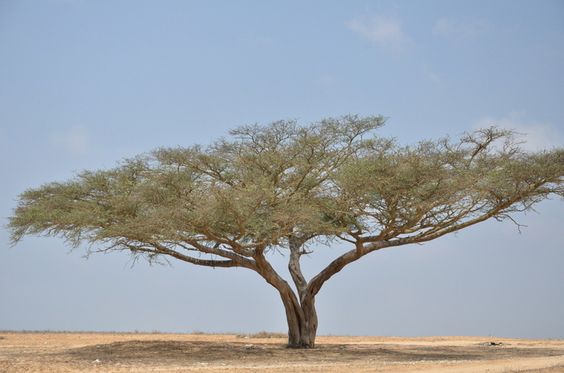Thank you for visiting. We trust that you have enjoyed reading our articles.
Lessons Learned Under A Broom Tree

“A voice said to him, Why are you here, Elijah? He replied, “I have been most zealous for the Lord, the God of hosts, but the Israelites have forsaken your covenant. They have destroyed your altars and murdered your prophets by the sword. I alone remain, and they seek to take my life.” (1 Kings 19:13-14 NIV).
The broom tree is a desert shrub that grows across Arabia and throughout the Judean wilderness. Its deep roots draw in the moisture of land that is otherwise barren. In the Bible, desert shrubs such as the broom tree appear in moments of despair as well as times of divine encounter.
Chapter 21 of Genesis describes a young mother who was sent away into the wilderness. With little to sustain her, she wandered until her water supply completely ran out. Placing her son under a broom tree to die, she then sat down and wept. Job describes the broom tree as a place of desolation, ruin, and abandonment (Job 30:3-4). The Psalmist connects the broom tree with mourning, distress, and punishment (Psalm 120).
For many Christians the broom tree is most often associated with Elijah. Elijah is first mentioned in 1 Kings 17, where he proclaimed a drought as penalty for the evil deeds of the kings of Israel.
Elijah later presented himself to King Ahab, telling him to summon the prophets of Baal and Asherah on Mount Carmel, along with all the people of Israel. He confronted the people and told them that if they prepared a sacrifice and called on Baal, he would prepare a sacrifice and call on the Lord. Whichever caught fire would then demonstrate who was the true God. The worshippers of Baal prepared their sacrifice and called upon him from morning until noon, with no answer.
Then Elijah rebuilt the altar of the Lord, prepared the sacrifice, and poured four jugs of water on it. He called upon the Lord, and the Lord answered him by sending down fire to consume the altar.
After this, the prophets of Baal were seized and killed. When King Ahab told his wife Jezebel what Elijah had done, she vowed to kill him. Elijah was terrified and fled into the desert, where he prayed for the Lord to take his life, then fell asleep under a broom tree. A messenger from the Lord came to him twice, urging him to eat and drink. After doing so, he journeyed 40 days in the wilderness to Mt. Horeb, where he hid in a cave. Then…..
“A Voice said to him, ‘Why are you here, Elijah?’ He replied, ‘I have been most zealous for the Lord, the God of hosts, but the Israelites have forsaken your covenant. They have destroyed your altars and murdered your prophets by the sword. I alone remain, and they seek to take my life.’” (1 Kings 19:13-14 NIV). Elijah was anxious, angry, and tired.
The good news is that God met with Elijah at the broom tree. He revealed himself to Moses in a thorny acacia. He also heard Ishmael’s cries from beneath the bush and directed his mother to a well in the desert. He rescued Isaac by revealing a young ram whose horns were caught in a bush so Abraham could sacrifice it instead of his son, Isaac. God shows up in some very thorny situations.
The lesson of the broom tree is that sometimes when God meets us in the desert times of our lives, God provides us relief like a broom tree. The shade is not enough to last us forever, but enough to help us take the next steps. It is enough for us to sit under for a few minutes to draw strength for the next step and then the next step. The journey is not always short, sometimes it takes a long time to get through it. Elijah’s journey took over a month to go from Judah to Mt. Horeb in the hot Egyptian desert. When he met God at Mt. Horeb, he was still struggling, still searching for a solution to his problem. God did not make his circumstances disappear. God did not give him much sympathy. However, God did give Elijah direction, sustenance for the road, a renewed purpose and later, in that same chapter in 1 Kings, a companion on the road—all things that kept Elijah going.
The broom tree also offers us an image for our mission and ministry. We, like broom trees, spring up in all kinds of places. We can provide shade for those in need of encouragement and sustenance. Some will come and stay and plant roots in our shade and become part of the plant (Body of Christ) that offers even a little more shade to others. Others may only stay for a moment, just long enough to get the energy to take the next step. Sometimes a brief rest, a kind word, a simple sandwich may be just what God uses to help someone take the next step. It has been said that sometimes we are the windshield and sometimes we are bug. Similarly, sometimes we are the broom tree (the giver), and sometimes we are the traveler (the taker). Sadly, some in life are forever determined to remain as the latter.
When we are exhausted or depressed, we can be strengthened under the broom tree. It is there we can find shade when we are traveling through the dry, hot wilderness. It is there we can find warmth when we are cold and miserable. It is there we can find nourishment when we are hungry and thirsty. It is there we find communion with God, as His angels minister to us, like they ministered to Elijah, serving him the bread and water. This world needs more broom trees providing random acts of kindness and kind words.
Prayer: Dear God, Thank you for the broom trees that you provide us in our time of need. Help us to be rooted in You in such a way that the Fruits of Your Spirit are manifested in our words, thoughts, and actions. Help us to remember that our strongest witness is often absent words but rather in simple acts of kindness. Amen.
Meet the Author
Todd Shupe is a Men’s Ministry Specialist through the General Commission of United Methodist Men and a Certified Lay Speaker with the Louisiana Conference of the United Methodist Church. He is a Board Member for Gulf South Men, an Action Team member for The Kingdom Group, and a Board Member for the Lagniappe Community Walk to Emmaus. Todd is a Past President of the Baton Rouge District of United Methodist Men and remains active in this and many other local, regional, and international ministries. Todd is the proud father of Emma and Kyle and resides in Baton Rouge, Louisiana.
We welcome your comments below.
Liked this post?
Read more below or search for more topics...
-
All We Can Do Now Is Pray?
All We Can Do Now Is Pray? “The effectual fervent prayer of a righteous man availeth much” (James 5:16 KJV). I was recently talking with a friend of mine whose wife is in hospice care. He has been keeping in close contact with his pastor and passing along daily medical updates. Each day the pastor told my friend to “hang in there” and then politely end the conversation. Eventually her condition became critical and the doctors estimated that she only a few more days to live. My friend spoke to his pastor that day and relayed the devastation news. The pastor said,... -
The Biblical Path To Peace
The Biblical Path To Peace “Do not be anxious about anything, but in every situation, by prayer and petition, with thanksgiving, present your requests to God. And the peace of God, which transcends all understanding, will guard your hearts and your minds in Christ Jesus. Finally, brothers and sisters, whatever is true, whatever is noble, whatever is right, whatever is pure, whatever is lovely, whatever is admirable—if anything is excellent or praiseworthy—think about such things. Whatever you have learned or received or heard from me, or seen in me—put it into practice. And the God of peace will be with you” (Philippians 4:6-9 NIV). Americans are more stressed... -
What is Truth?
What is Truth? "Jesus answered, “I am the way and the truth and the life. No one comes to the Father except through me" (John 14:6 NIV). In today’s society there is a constant battle over the truth. I wonder how can something so simple as the truth be so difficult to understand and agree upon. Facts are disputed, alternative facts are presented, and various groups all claim to have the truth regarding any issue: social, financial, medical, and even spiritual. You will never grow closer to Christ unless you understand the truth. Growth requires truth. We might disagree on how to best...



